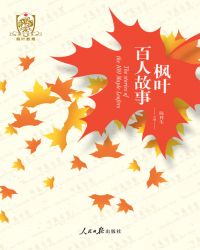My Special Experience
MLIS – Hainan Gregory Stevens
Six years ago, I made a life-altering decision. I decided to move to China and teach English. For five of those years I have worked at Maple Leaf International School; four years at Zhenjiang and one year in Haikou. For me Maple Leaf has been a place to learn, to grow and develop my teaching skills.
When I came to China I was looking to start a new chapter in my life. I wanted to explore a new culture, learn some of the languages, try some of the food and apply what I love to do, teach, in an academic setting rather than in an industrial setting. I taught for a year at a training center in Qingyuan, Guangdong. I worked in several Middle Schools, for my first year, teaching students in classes of fifty, twice a week.
Then I applied to Maple Leaf. I still remember the interview I had after I applied for a position in Maple Leaf. Who asked me many questions but there was one I remember the most. “You only have one year of experience of teaching English in a classroom. Why should I hire you over someone with more teaching experience? ”
I replied: From my one year in China, my observation has been that teaching here isn't the same as back in the west. Sometimes a teacher walks into a classroom, sees the low level of English and after many frustrating attempts to reach the students declares “I can't teach these students, they don't listen, they won't be quiet, they don't understand”.
Fun, engaging and educational.
When I walk into the same classroom and run into the same problems, I don't look at it from the same perspective. I look at it as a problem that needs to be solved and I ask myself: What do I need to do differently to get them to understand? And by trial and error, I reach my students and they understand.
She must have liked what I said because I started at Zhenjiang Maple Leaf campus the next term. Maple Leaf was a completely different experience from my first year in China. Although many aspects of the job were the same, because I was teaching Chinese students in China, there were a lot of things that were different.
My class size was no longer fifty but rather thirty-five. I didn't see my students twice a week but five times a week. And I got to know the names of all of my students. The next few years I developed a unique teaching style that focused on fostering the development of life skills and study habits.
Now I am in Haikou and have the opportunity to help create something new.Haikou is a new acquisition for Maple Leaf and the challenges of transplanting the Maple Leaf culture and teaching philosophy are great. It will be a multi-year process before real change and impact are made. Cooperation between the Chinese teaching staff and foreign teacher will be an important part of the transformation.
Cooperation, of course, is the combined work of everyone working toward the common goal. But cooperation is not always easy, especially in a cross-cultural environment where cultural differences, language barriers, and personal desires can often get in the way.
I showed interest in their classes, wondered the halls during my free periods looking in and introducing myself to new classes and sought ways to make myself available for them. I wasn't sure how they would respond to me poking in and looking at their classes. I didn't want to be a distraction, but they always welcomed me and often teaching moments would arise.
Jiangdong was a new campus and we started with few resources at the beginning of the year. Many things that I had available to me at my previous school were lacking here. Rather than curse the darkness, I decided to light a candle. I invested in resources I needed; things like a paper cutter, laminator. I keep them in the office and I made them available to my fellow teachers.
Beyond sharing educational things, I tried to bridge cultural gaps between us in other ways. When I noticed one of my fellow English teachers having a hard day, I would often encourage them, and ask what was wrong. Usually their mood was affected by student behavior. I reminded them that this is normal student behavior, and was not personally directed at them.
When I made things at home like banana bread, or cornbread muffins I would bring them in and share them with my coworkers so they could get a taste of foreign foods. These are just some of the ways I tried to bridge the gap and become part of the Jiangdong campus to help create something special.
Sometimes we lose our focus and get caught up in the lesson planning, the course material or get bogged down in the grading, marking and paperwork. It can be distracting from our true mission as teachers: to motivate our pupils to take initiative to explore, to understand and to learn about life and the world around them for themselves. We forget that the students are our common goal, our motivation and the reason that we strive to be the best teachers that we can. 枫叶百人故事
